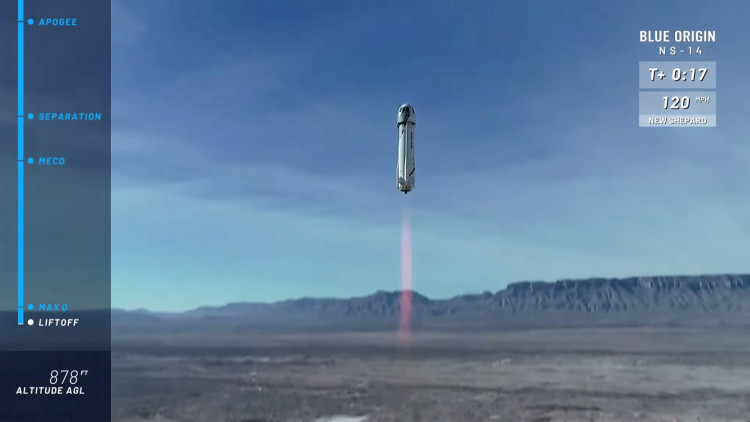On Monday, Sept. 12, shortly after launch, a rocket from Jeff Bezos' space business Blue Origin failed mid-flight, aborting its cargo capsule to safety before crashing into the Texas desert, according to the company and a live video webcast of the mission.
The U.S. Federal Aviation Administration, which is in charge of ensuring the safety of launch sites, claims that the booster crashed within a defined hazard region. Until the FAA approves the findings of a company-led inquiry into the incident, Blue Origin's fleet of New Shepard rockets is grounded, the agency added.
As the 23rd New Shepard mission for Blue Origin, the rocket blasted off from the company's West Texas launch facility on Monday morning. The mission's objective was to send NASA-funded experiments and other payloads to the edge of space so they could float for a few minutes in microgravity.
But just over a minute after takeoff, at an altitude of around 8.05 kilometers, the New Shepard booster's engines unexpectedly flared up while climbing. Virtually instantaneous activation of the capsule's abort motor system propelled the craft away from the malfunctioning rocket before it parachuted back to land unharmed.
"During today's flight, the capsule escape system successfully separated the capsule from the booster," Blue Origin tweeted. "The booster impacted the ground. There are no reported injuries; all personnel has been accounted for."
The NS-23 mission, which was the fourth for 2022, was the first New Shepard launch in more than a year to not have any people on board. Blue Origin's suborbital space tourism business has used the rocket-capsule system to transport 31 passengers in total. Paying customers are launched into space at a height of about 62 miles, where they experience a brief period of microgravity before their capsule descends to earth using parachute systems.
During New Shepard's first crewed mission in 2021, billionaire Bezos, the founder of Amazon.com Inc. who also founded Blue Origin in 2000, was among the first passengers to board.
It was unclear right away whether the eight previous flights of the rocket that crashed on Monday involved any human beings. Prior to its first crewed flight, Blue Origin completed 15 flights of New Shepard.
In addition to its tourism flights, Blue Origin has more ambitious objectives, such as the New Glenn project for orbital flights, which is set to make its first test flight next year, and the creation of a human-rated moon lander in collaboration with NASA.






